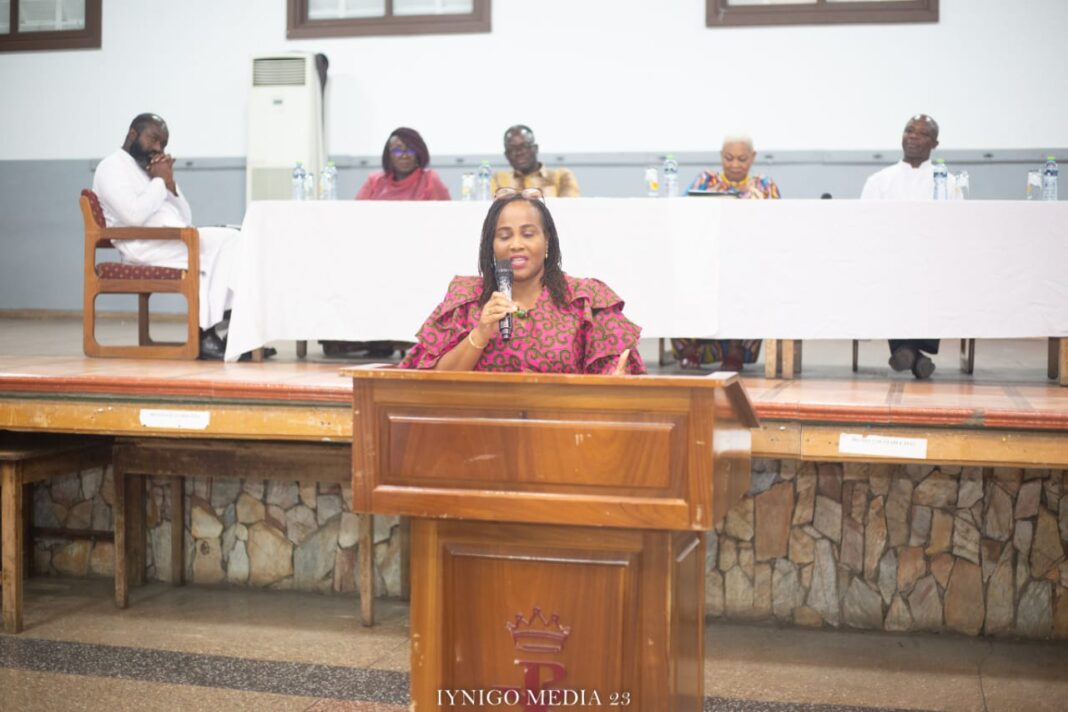Nature is at the heart of God’s creation as is evidently seen from the days of creation and the charge given to Adam to dress and keep the Garden of Eden.
Genesis 2:15 KJV
“And the LORD God took the man, and put him into the Garden of Eden to dress it and to keep it.”
‘To take care of’ may also be translated as to preserve and also as to serve. The Earth and all that is in has been given to us but it is for God. Wee caretakers and therefore we will make an account of stewardship one day.
Psalm 24:1-2
‘The Earth is the Lord’s and everything in it, the world and all who live in it for he founded it upon the seas and established it upon the waters.’
Leviticus 25:23-24
‘The Land must not be sold permanently, because the land is mine and you are but aliens and my tenants. Throughout the country that you hold as a possession, you must provide for the redemption of the land’.
Revelations 11:18
The nations were angry; and your wrath has come. The time has come for judging the dead, and for rewarding your servants the prophets and your saints and those who reverence your name, both small and great- and for destroying those who destroy the earth.’

The Major Environmental Challenge: POLLUTION
I swill speak today one main challenge I see confronting our charge to protect the environment:
Pollution it is a consequence of the high level of environmental degradation we are experiencing today and it is linked to every other form of activity that either protects or destroys the environment
Its about our Waterbodies, Forest and Vegetation, Waste Disposal and Sanitation, Mining activities (galamsey) and its is also about Climate Change- emission of greenhouse gases and the various fluorocarbons.
From air pollution to water pollution, climate change to smog, understanding the consequences of our actions is the first step addressing the challenge:
So we must understand that any substance in water, soil, or air that degrades the natural quality of the environment; offends [the senses]; causes a health hazard; or [impairs] the usefulness of natural resources in essence amounts to pollution. Put simply, pollution is any substance that causes harm upon entering the environment.
There are many ways to classify pollution, but one common framework distinguishes “point source” – or pollution that comes from a single identifiable source – from “non-point source,” which is trickier to pin down.
Smoke from power plants- industries, automobile/ vehicles that emit carbon dioxide and particulate matter; Leakage from gasoline storage tanks- fuel and gas stations, other storage holding containers including household gallons; discharge pipes at a wastewater treatment plants, household drains and pipes, that seeps into the air and into groundwater supplies directly are all examples of point-source pollution.

Nonpoint-source pollution, by contrast, is wider spread, originating from many sources spanning wider areas. This includes agricultural runoff containing fertilizers, pesticides, curtailed mining activities, Urban and suburban runoff containing oil, grease, and other hazardous materials, dumping of waste into river bodies and other sources, open air defecation (eradicated in most parts of the country).
Building in wetlands and destruction of river borders is also another form of pollution. Local and national efforts to restore wetlands are underway in many places, which recognize the importance of wetlands in mitigating the effects of pollution. Wetlands not only trap sediments and particulate matter, filtering harmful nutrients and chemicals, but also support a wealth of biodiversity.
Deforestation and Forest Degradation are known to contribute about 17-20% of global Greenhouse gas emissions. Activities such as illegal mining, illegal logging and agricultural expansion into forest lands all lead to loss of forest lands and result in the release of carbon dioxide which is a major greenhouse gas. However, when Forests are left standing, they sequester carbon dioxide through their photosynthetic abilities.
Ghana currently has a forest estate of about 6.5million hectares with a deforestation rate of about 1-1.5% per annum.
Plastic pollution
The EPA of the US reports that of the 380 million tons of plastic produced per year, some 31 million tons will enter the environment and around 8 million will enter the ocean.
As they degrade in the environment, plastic bottles and plastic waste becomes “microplastics,” small particles of plastic that find their way into food chains, soil, rain,– even our lungs – in high levels.

Some scientists speculate chemical toxicity from microplastics might affect pregnancy or cause cancer. Others fear “nano-plastics” – plastic particles even smaller still – may enter cells and disrupt cellular activity. Mitigation efforts such as re-cycling only go so far; for example, much of the plastic that is “re-cycled” is not, in fact, recycled, instead of shipped to developing countries where it re-enters the environment.
Soil contamination
Contaminated soils are very common everywhere and the most common pollutants including agrochemicals, petrochemicals, microplastics, acid rain, and industrial waste. In some cases, soils are polluted through agricultural practices, including the application of pesticides, fertilizers, and irrigation water that contain microbial pathogens. While some pesticides and herbicides degrade readily, other agrochemicals are “persistent,” meaning the agrochemical and its by-products linger in the soil, sometimes up to 10 years.
Mining especially and the illegal bit causes heavy metals like cadmium, lead, mercury and arsenic, and other bio-toxic substances to be constantly released into the soil.
Radioactive and Electromagnetic Pollution
When thinking about radioactive contamination, atomic activity and Chernobyl may come to mind. However, radioactive contamination is more widespread than these isolated incidents. We need to ask where we site out electric power stations and high tension and how we build indiscriminately close to these areas. Radioactive contaminants are generated by uranium mines, nuclear reactors, and test laboratories, where they can enter the environment.
For example, uranium mining can release radiation into the soil, at which point rain washes this material into drinking water.

Much of the technology we use today — from our cell phones to our laptops to the wi-fi that connects them — generates an electromagnetic field. At certain frequencies and exposure levels, this energy can be considered toxic (for example, strong fields have been shown to cause burns). That being said, the jury’s still out on whether our current exposure to electromagnetic energy is detrimental to human health and wildlife.
Noise pollution and light pollution
Seemingly harmless compared to plastic, water, and air pollution, noise and light pollution can damage ecosystems. Often associated with urbanization, noise pollution is defined as “unwanted or disturbing sound” and light pollution as “excessive brightness that causes discomfort.” Both noise and light pollution can harm human health and wildlife, affecting sleep, decreasing fitness, and altering behaviours.
POSSIBLE SOLUTIONS/ Addressing the challenges
- Institutional Strengthening
We have institutions at both local, national and international levels and they work in tandem with each other. In Ghana we have the EPA, Forestry Commission, Water Resource Commission and all others.
Ghana adheres to existing protocols and some of these have contributed to addressing the identified challenges.
The United Nations Framework Convention on Climate Change is the UN agency responsible for coordinated action to reduce climate change and keep global temperature at 1.5 degrees through national actions by 192 countries. Ghana is an active country in that space and is implementing the global mechanism reducing ‘emissions from deforestation and forest degradation while enhancing Forest Carbon stocks (REDD+). The program promotes actions to reduce agricultural expansion into forest reserves and protected areas, provides alternative livelihoods for farmers and also promotes climate smart agriculture such as agroforestry with the right species combinations to reduce pest and diseases.

Ghana also through the Green Ghana Project has actively championed the massive planting of trees by all Ghanaians on a set day. The National Forest Plantation Program has also existed long ago and actively restores degraded forest lands with the help of local communities and private sector.
The Governments fight against illegal mining activities is also still ongoing. We must be relentless and support this fight. It must be well understood that the fight will not be fought in a day and thus it will have to be continuous and consistent.
- Regulatory Policy Implementation Process- Fraught with challenges
We have the right regulatory frameworks and policies to go with our institutions. It is the implementation that is fraught with challenges and here I propose serious advocacy and education channels through various platforms. This is a good opportunity to speak on such issues. We must also encourage the media not to only take a stand that criticises what is not being done but to emphasise and seek to explain what is being done.
We must also reduce the technical terms in some of the policies to allow lay people to better understand what and why it is necessary to protect the environment. I say here that climate change for instance is sometimes thought to be complicated but there is all the evidence in the changing weather rainfall patterns that show it will continue to affect greatly rain-fed agriculture common to many small holder farmers in our part of the world., How do we explain Cop 26 to a local farmer and further the effects of burning to a local scrap dealer?
- Bribery and Corrupt practices that condone the norm and allows us to bypass the laws. A lot of this borders on moral standards and how we move this into our daily lives.
- Practice what we preach- adaptation of simple practices in our daily lives on waste disposal, use of harmful chemical, use of plastic, etc.
The practice of reuse needs to cultivated by all to reduce the tons of waste we generate. Recycling can be at the household level. How do get rid of plastic waste especially? It has been suggested we go back to using glass which is more recyclable. The use of pure water and plastic bottles is going to continue being a menace. Is it a cost we can afford?
By Dr. Antoinette Tsiboe-Darko, a Research Fellow at the University of Ghana.
[A presentation she made at the Arrupe Jesuit Institute’s “Faith in the Public Sphere” programme themed: “Christians as Citizens, not Spectators” at the Christ the King Parish, Accra on March 7, 2023].



